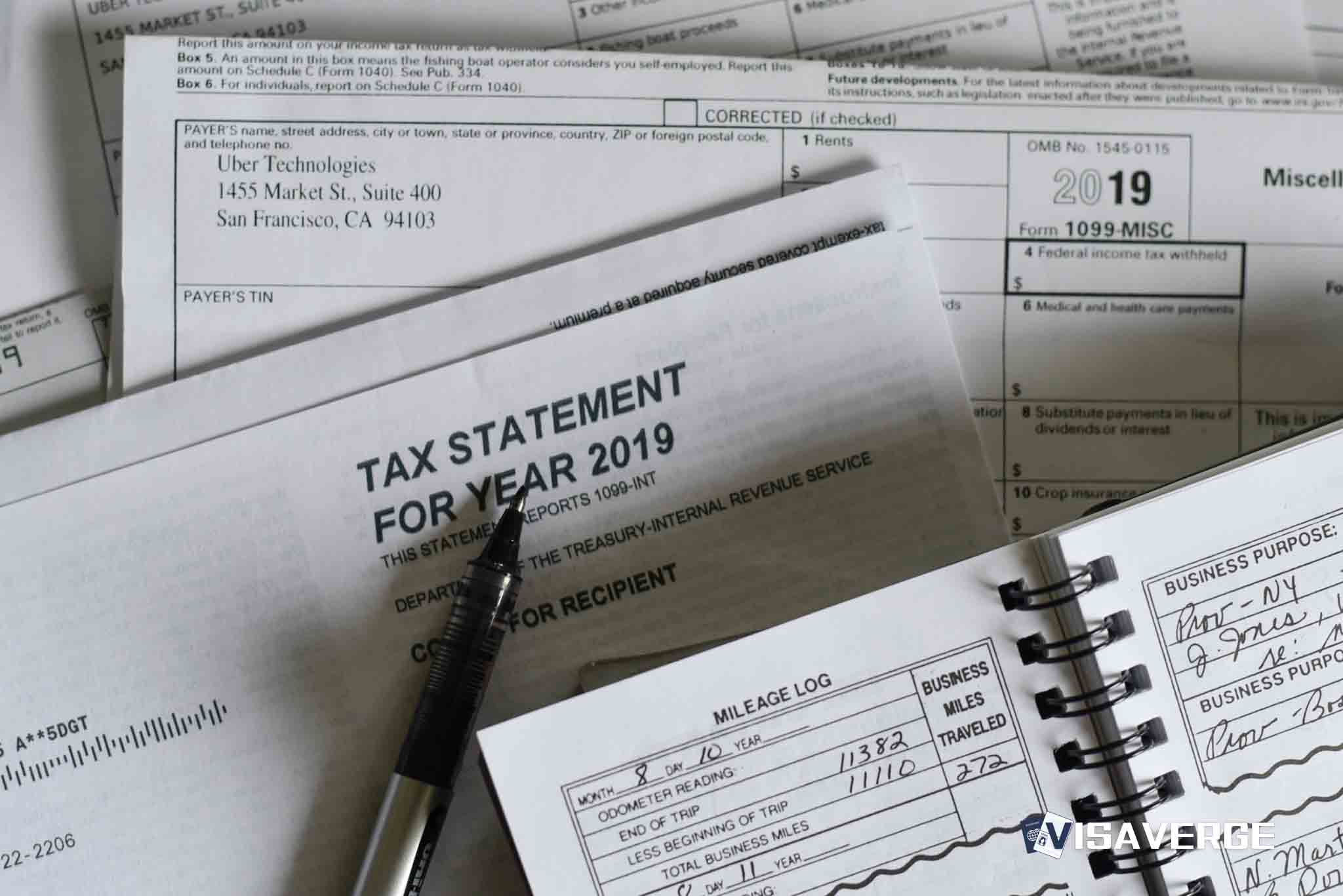Understanding the UK-EU Trade and Cooperation Agreement
In the wake of the United Kingdom’s departure from the European Union, also known as Brexit, a critical document termed the UK-EU Trade and Cooperation Agreement was finalized. This pivotal treaty, which came into effect on January 1, 2021, laid the groundwork for a new relationship between the UK and the EU, encompassing economic, social, and security cooperation.
Key Components of the UK and EU Trade Agreement Details
The agreement is wide-ranging and covers several aspects of the UK’s and EU’s future relationship. Its pillars include:
- Trade in Goods and Services: Establishing zero tariffs and quotas on trading goods, it ensures that businesses can continue operations with less disruption.
- Fair Level Playing Field: It aims to protect fair competition and contains measures on state aid, workers’ rights, and environmental protection.
- Law Enforcement and Judicial Cooperation in Criminal Matters: A commitment to uphold shared values and cooperation in the fight against crime and terrorism.
Brexit Trade Deal Implications on Immigration
One of the most significant Brexit trade deal implications concerns immigration and the rights of citizens to live and work across borders. Under the agreement, the freedom of movement between the UK and the EU has ended. Now, UK nationals no longer have the automatic right to live and work in the EU, and vice versa. Instead, immigration is governed by the regulations of each member state, substantially affecting individuals and businesses alike. Travelers may need visas or work permits depending on their country of origin and destination.

Navigating Work Visas After Brexit
If you’re planning to work in the EU post-Brexit, it’s essential to understand the specific requirements of the country you’re targeting. This can range from applying for a work visa to seeking resident status. For UK nationals, many EU countries have implemented systems that require a job offer from a local employer before applying for a visa.
For businesses, the implications are profound. Companies that rely on EU talent will need to navigate the points-based immigration system introduced by the UK, which determines eligibility for a work visa based on specific skills, qualifications, and salaries.
Travel Conditions Under the New UK-EU Relationship
Travelling between the UK and the EU for short stays (up to 90 days in any 180-day period) generally does not require a visa for tourists and business visitors. However, long-term stays and the right to work, study or provide services involve more stringent immigration procedures.
Staying Informed with Official Immigration Resources
It’s important to consult official sources for the most accurate and updated information. For detailed guidance on the UK’s points-based immigration system, you can visit UK Visas and Immigration. Similarly, for EU-related immigration questions, the EU Immigration Portal offers valuable insights. Remember that rules can vary significantly from one EU country to another, so consulting with the embassy or immigration authority of the specific country is crucial.
As the world adjusts to the nuances of the UK-EU Trade and Cooperation Agreement, individuals and businesses alike must stay apprised of evolving legislation and trade regulations. There’s no doubt that the agreement has brought significant changes to how the UK and the EU will interact in trade, security, and immigration. Staying informed and prepared is key to navigating this complex landscape successfully.
Expert Insights
Did You Know?
1. Historical Immigration Patterns: Immigration has a long history, and the movement of people across borders is not a recent phenomenon. In the 19th century, for example, approximately 4 million Italians left their country to seek better opportunities abroad, with a significant number settling in the United States.
2. The Ellis Island Era: Ellis Island, located in New York Harbor, was the main entry point for immigrants arriving in the United States between 1892 and 1954. During this time, over 12 million immigrants passed through Ellis Island, with peak years seeing as many as 1 million immigrants annually.
3. The Impact of Immigrants on the Economy: Studies consistently show that immigrants make significant contributions to the economies of their host countries. In the United States, for instance, immigrant-founded businesses have played a crucial role in job creation and innovation, with more than 40% of Fortune 500 companies having been founded by immigrants or their children.
4. The Diversity Visa Lottery: The United States’ Diversity Visa Lottery, also known as the Green Card Lottery, offers a chance for individuals from countries with historically low immigration rates to win a permanent residency visa. Each year, approximately 50,000 diversity visas are made available through this lottery, with millions of applicants worldwide.
5. Brain Drain and Gain: Brain drain refers to the emigration of highly skilled or educated individuals from their home country to another, often resulting in a loss of talent and expertise. On the other hand, brain gain occurs when a country attracts skilled professionals from other nations, bringing valuable knowledge and expertise to their new home.
6. The 1951 Refugee Convention: The 1951 Refugee Convention is a crucial international legal instrument that defines who is a refugee, outlines their rights, and sets out the legal obligations of states towards refugees. It establishes the principle of non-refoulement, which prohibits returning refugees to a country where they may face persecution.
7. Dual Citizenship: Some countries allow individuals to hold dual citizenship, meaning they can be citizens of two or more countries simultaneously. This can offer numerous benefits, including access to social services, employment opportunities, and the ability to travel freely between countries without the need for visas.
8. The Impact of Remittances: Remittances, which are money transfers sent by immigrants to their home countries, play a crucial role in global economies. In 2020, remittances to low- and middle-income countries amounted to over $540 billion, surpassing foreign direct investment and official development assistance combined.
9. The Great Migration of African Americans: Between 1916 and 1970, approximately 6 million African Americans moved from the rural Southern United States to urban areas in the North, Midwest, and West. This mass movement, known as the Great Migration, resulted in significant demographic, cultural, and social changes in the country.
10. The Impact of Language Diversity: Immigration contributes to linguistic diversity in communities and nations. For example, in New York City, over 800 languages are spoken, making it one of the most linguistically diverse cities in the world. Language diversity enriches cultural heritage and fosters understanding among communities.
Remember, these facts only scratch the surface of the fascinating and intricate world of immigration. Exploring further can provide valuable insights into the history, challenges, and contributions of immigrants around the globe.
Learn today
Glossary or Definitions:
- UK-EU Trade and Cooperation Agreement: The UK-EU Trade and Cooperation Agreement is a document that outlines the new relationship between the United Kingdom and the European Union following Brexit. It covers various aspects such as trade, economic cooperation, social cooperation, and security cooperation.
- Brexit: Brexit refers to the withdrawal of the United Kingdom from the European Union. It occurred on January 31, 2020, after a referendum in which a majority of UK citizens voted to leave the EU.
-
Tariffs: Tariffs are taxes or duties imposed on imported or exported goods. In the context of the UK-EU Trade and Cooperation Agreement, the agreement establishes zero tariffs, meaning there will be no taxes on trade in goods between the UK and the EU.
-
Quotas: Quotas refer to limits imposed on the quantity of goods that can be imported or exported. The UK-EU Trade and Cooperation Agreement eliminates quotas, allowing businesses to trade goods without restrictions on the quantity.
-
Fair Level Playing Field: The fair level playing field refers to a commitment in the UK-EU Trade and Cooperation Agreement to ensure fair competition between the UK and the EU. It includes measures regarding state aid, workers’ rights, and environmental protection to prevent unfair advantages for businesses and maintain a fair economic environment.
-
Law Enforcement and Judicial Cooperation in Criminal Matters: This pillar of the UK-EU Trade and Cooperation Agreement involves cooperation between the UK and the EU in the fight against crime and terrorism. It includes sharing information, joint operations, and extradition agreements to maintain security cooperation.
-
Freedom of Movement: Freedom of movement refers to the right of individuals to live and work in any member country of the European Union. After Brexit, the freedom of movement between the UK and the EU no longer applies, and immigration between these regions is governed by the regulations of each member state.
-
Work Visas: Work visas are documents issued by a country’s immigration authority that allow individuals from other countries to work legally within that country. After Brexit, UK nationals may need to obtain work visas to work in EU member states, and vice versa, depending on the regulations of each country.
-
Points-Based Immigration System: The points-based immigration system is a system introduced by the UK to determine eligibility for a work visa based on specific skills, qualifications, and salaries. It assigns points to various criteria, and individuals need to meet a minimum points requirement to be eligible for a work visa.
-
Short stays: Short stays refer to visits to another country for a limited period, usually up to 90 days in any 180-day period. For tourists and business visitors, short stays between the UK and the EU generally do not require a visa. However, specific requirements may vary depending on the purpose and length of the stay.
-
Resident status: Resident status refers to the legal status of an individual who has been granted permission to live and reside in a country. Obtaining resident status in an EU country may be required for individuals planning to work or live in the EU post-Brexit.
-
Points-based immigration system: The points-based immigration system is a system introduced by the UK that determines eligibility for a work visa based on specific skills, qualifications, and salaries. Points are assigned to various criteria, and individuals need to meet a minimum points requirement to be eligible for a work visa.
-
Official Immigration Resources: Official immigration resources refer to government websites or portals that provide accurate and up-to-date information on immigration rules, procedures, and requirements. These resources are essential for individuals and businesses to stay informed and comply with immigration regulations.
So there you have it, folks! The UK-EU Trade and Cooperation Agreement is in full swing, shaping a brand new relationship between the UK and the EU. From trade and fair competition to immigration and travel, there’s a lot to unpack. If you’re hungry for more juicy details and want to stay on top of these exciting developments, head over to visaverge.com for your regular dose of all things UK-EU trade and beyond. Happy exploring!
FAQ’s to know:
FAQ 1: What are the key components of the UK-EU Trade and Cooperation Agreement?
The UK-EU Trade and Cooperation Agreement encompasses various aspects of the UK’s and EU’s future relationship. It consists of three main pillars: trade in goods and services, fair level playing field, and law enforcement and judicial cooperation in criminal matters. The agreement establishes zero tariffs and quotas on trading goods, protects fair competition through measures on state aid, workers’ rights, and environmental protection, and commits to shared values and cooperation in combating crime and terrorism.
FAQ 2: How does the Brexit trade deal impact immigration between the UK and the EU?
The Brexit trade deal has ended the freedom of movement between the UK and the EU, impacting immigration rights. As a result, UK nationals no longer have automatic rights to live and work in the EU, and vice versa. Immigration regulations are now determined by each member state, which means individuals may need visas or work permits depending on their country of origin and destination. This change significantly affects individuals and businesses conducting cross-border operations.
FAQ 3: What should individuals and businesses know about work visas after Brexit?
After Brexit, individuals planning to work in the EU should acquaint themselves with the specific requirements of their desired country. Many EU countries now require a job offer from a local employer before applying for a work visa. For businesses relying on EU talent, the UK has introduced a points-based immigration system that assesses eligibility for a work visa based on specific skills, qualifications, and salaries. Understanding these requirements is crucial for both individuals and businesses to navigate the post-Brexit work visa landscape effectively.
What did you learn? Answer below to know:
- True or False: The UK-EU Trade and Cooperation Agreement ensures zero tariffs and quotas on trading goods between the United Kingdom and the European Union.
- What are the key pillars of the UK-EU Trade and Cooperation Agreement?
- a) Trade in Goods and Services
- b) Fair Level Playing Field
- c) Law Enforcement and Judicial Cooperation in Criminal Matters
- d) All of the above
- How has Brexit impacted immigration between the UK and the EU?
a) Citizens have the same freedom of movement as before Brexit.
b) UK nationals can automatically live and work in the EU without any restrictions.
c) Each member state now regulates immigration independently, requiring visas or work permits.
d) Immigration rules are the same as before Brexit, with no changes.








